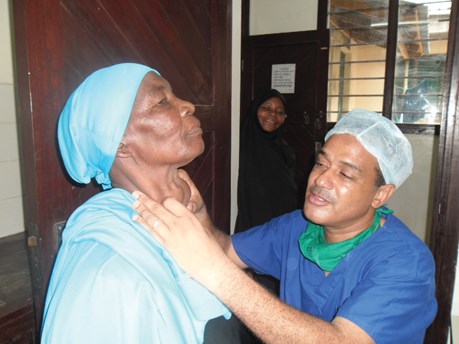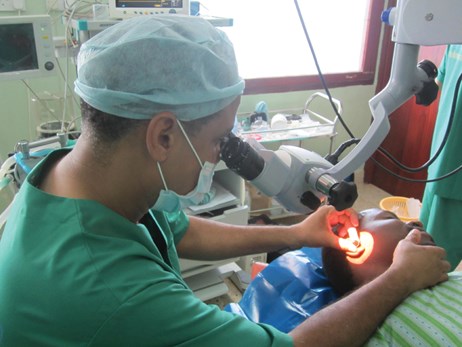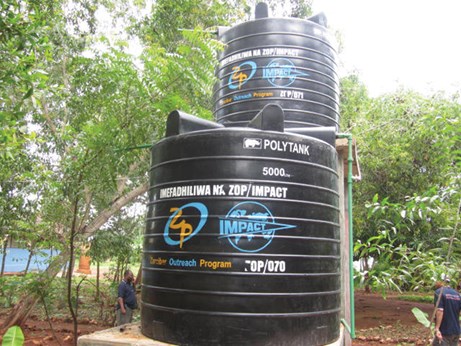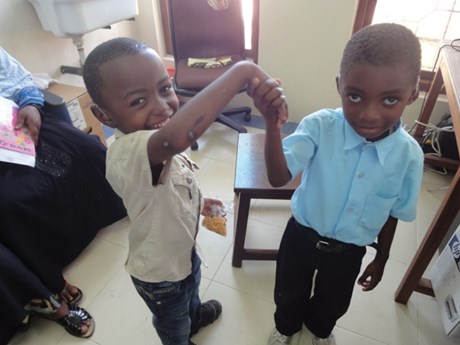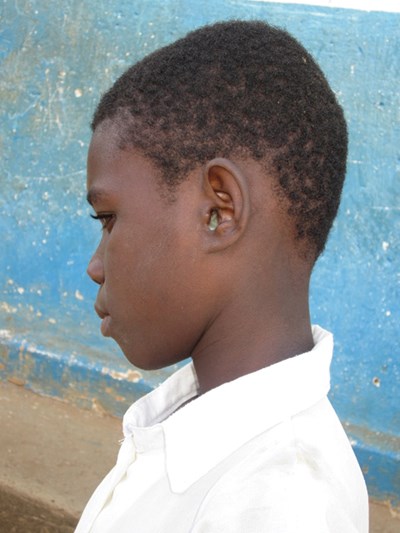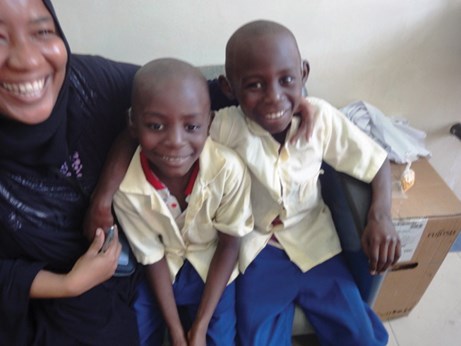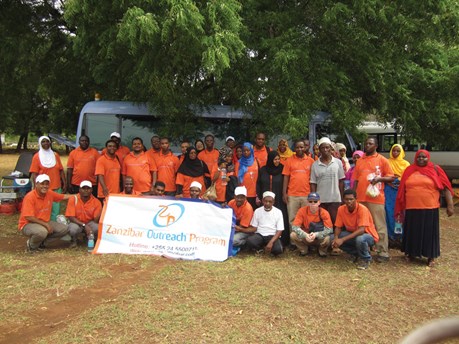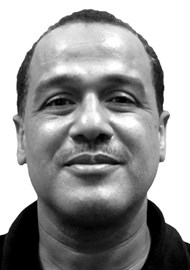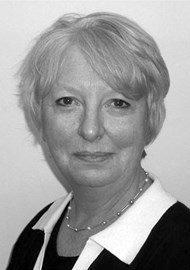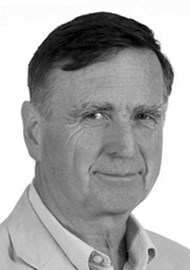Jane and I first met you six years ago, when we were questioning the apparent high incidence of childhood deafness in Tanzania, and it is a real pleasure doing this interview with you. Your contribution to ENT and general health problems in Zanzibar in such a short time has been quite outstanding and I hope you will not be too modest in your answers, as I feel your practice is a real model for many developing countries.
Were you born and educated in Zanzibar?
Yes, I was born, raised and had my compulsory education here before I went abroad to pursue my medical degree at Istanbul University in Turkey. I received my post graduate ENT training at the University of Nairobi, Kenya.
You had some great teachers for your ENT specialist training in Nairobi, including Prof Isaac Macharia. What qualities did you learn from them?
I learned total dedication and very high ethical standards in working with very needy people. Also the importance of working as part of a team. Prof Macharia was such a hero and role model for the whole class. When you worked well in class it was an honour to be compared to him by your classmates. I admired how well he managed his time. He was the most active ENT surgeon in Nairobi, still making time to go to outreach clinics. He was so well organised and was so generous with his time and knowledge. I hope I have learned that from him.
Dr Naufal Kassim examining a thyroid.
Dr Naufal operating.
When you were appointed to the government hospital, Mnazi Mmoja, in 2006 I believe you were the only ENT consultant for more than a million people in Zanzibar and Pemba Island. What did you find in your department?
Yes, I was the only ENT surgeon and the department was a two room clinic with a small theatre. The department was mainly dealing with removal of foreign bodies from the ears and throat, nothing else was done in terms of ENT practice or surgery.
Are you still the only ENT consultant?
I am the only local ENT consultant, we do get a visiting ENT specialist from China from time to time as the two governments have a collaboration to provide medical specialists to the island on a contract basis.
Are there any Trainees?
No one so far.
What did you feel was needed to develop good ENT care when you arrived?
There was a lack of trained staff (medical, audiological and nursing) and it was a major priority to recruit appropriately. With the support and help that I had from Prof Macharia and Dr Rupani, I submitted a proposal to develop the ENT unit. The hospital, under the directorship of Dr Abdalla Mabodi agreed to provide the space for the unit and then Impact International funded the renovation and equipment for the unit. We now have one of the best ENT units in East Africa. I can never thank them enough.
ZOP clean water programme.
Happy new hearing aid users.
Chronic suppurative otitis media, one of the most common problems.
I believe that within six months of your appointment in 2006 you were a founder member of the Zanzibar Outreach Programme (ZOP). Please tell me what ZOP does and how it works.
ZOP aims to take medical care to isolated areas in Zanzibar and the surrounding islands and currently runs 10 major projects:
- Community water projects – clean water is essential to good health so community water projects are a priority. So far 82 clean water projects have been developed.
- Medical camps – including specialist ENT, eye, orthopaedic; obs and gynae, and general surgery medical camps.
- Mobile clinics in Zanzibar.
- Community camps in Pemba.
- Oral hygiene in Zanzibar and Pemba.
- Home visits to the houses for the elderly in outlying villages.
A total of 92 outreach camps, conducted annually where the patients are reviewed and managed medically or surgically. - The school health monitoring project – involving training of students and teachers (health monitors) in the prevention of chronic disabling diseases, including chronic suppurative otitis media. The project covers all the government’s primary schools.
- The school for the deaf and post hearing aid rehabilitation centre looks after the education of deaf children and helps them develop speech and sign language when fitted with hearing aids. The project empowers the deafwith communication skills.
- Health education – involving development of health awareness brochures and distribution to the community.
- Raising awareness of primary ear and hearing care.
- Early childhood health monitoring following the health of pregnant women until delivery and checking delivered babies for any congenital disability, so they can be managed as early as possible.
- Support of Zanzibar’s Orthopedic Workshop and the ENT unit of Mnazi Mmoja Hospital.
- Supporting the Between the Islands Education Scholarship for children of the victims drowned in the motor vessel ‘Spice Islanders’ sinking.
- Organising the distribution of charitable donations to those in need in outlying areas. Four distributions are done per year, mainly of clothes.
I am staggered by what you and ZOP have achieved in such a short time. Tell me how you have managed to fund your projects and whether you feel this is a model of care for other developing countries.
All the executive members are lucky in having reasonably secure, well paid jobs and they feel what they have is sufficient for their needs, so they donate what they can afford along with their talents to ZOP. An example being our head of finance, who is also financial director of Zanzibar University. Impact International is our main donor for most of the projects but funding also comes from international and local non-governmental organisations, visitors from overseas and local citizens. Local petrol companies, hotels and shipping businesses also pay the cost of fuel, transport and accommodation for the camps in Zanzibar and Pemba Island. The executive committee carry out fund raising activities and each sponsor one camp a year. They also pay the salaries for the staff at the school for the deaf, out of their own pockets. We rely heavily on volunteers.
It has been hard work but we now have an excellent network of supporters. Developing countries have to help themselves and local effort is essential to give us a feeling of ownership and pride in our work. However we could not achieve much of what we do without the generosity of outside donations, especially from IMPACT international.
Tell me how you think the ZOP Ear Care Education programme has changed attitudes to ear disease and deafness. I know you have been able to audit a project on the cause and incidence of sensory neural deafness. Has this changed practice and if so, how?
Our new project on primary ear and hearing care, through widespread community education is beginning to show real benefits. For instance our published study [1] into some of the causes of childhood sensorineural deafness has highlighted the dangers of systemic and local ototoxic antibiotics and by education this practice has reduced. Similarly noise protection and cotton bud education is starting to show good results.
What do you see as the main ENT problems facing you and how do you think these can be tackled?
We need to identify hearing loss in the very young much earlier. At the moment we cannot test the under fours easily, missing a real opportunity for early intervention. I think this can be solved by acquiring the right equipment and training our good audiologists.
Tanzania and Zanzibar need more ENT surgeons and audiologists. Can you suggest ways to recruit more trainees?
The Ministry of Health should make sure that any qualified doctor who is interested in ENT is encouraged and given the necessary facilities to enter ENT specialist training.
I note that every time ZOP carries out a health camp or supplies community water etc., you send a full report with lots of photos to all your supporters. This must be very good PR. Does it help with future funding?
Yes it does, ZOP has a policy that once a person donates he or she automatically joins the ZOP family and is added to the ZOP mailing list. We also make sure that within one week of the camp, the report comes out to show the activities of that particular camp or project.
Dr Mwannana, audiologist, with two new hearing aid wearers.
The ZOP team at the end of a camp with their bus.
Audiology is a vital part of the ENT service, how have you been able to recruit and train audiologists and technicians? What contribution do you think they make to ENT practice and general ear care?
First we were able to recruit a person who was interested in audiology and then secure the funds from Impact International to send her to Nairobi, Kenya for her full audiology diploma. She is now back and working at Mnazi Mmoja Hospital as well as participating in all ZOP hearing camps and projects. We also have a regular audiology training course at least once a year with other qualified audiologists. The technicians were trained in Dar es Salaam. They help us a great deal with hearing assessments and also increase our ability to distribute hearing aids. We also developed a leaflet for the community to educate them on hearing assessment for their children and what steps to take if they spotted a possible deaf child. The leaflet advises that the child should be taken to hospital for investigation as soon as possible and makes them aware of hearing impairment and ear disease and how to get help if they have concerns.
Do you feel that the audiology department is able to deal with the problems of early childhood deafness? What are the main difficulties and how might they be solved?
I think we have the staff who, with a bit of extra training, can do the job. Our main problem is the lack of equipment and facilities.
Are there any other comments that you would like to make, which you feel we haven’t covered?
Leaders are supposed to live as examples; I participate in almost all the ZOP activities including mobile clinics, outreach camps to Pemba, primary ear and hearing care and even charity distribution. Furthermore I am fully involved in the ENT department activities including theatres on Mondays, Wednesdays and Thursdays and in clinics and surgeries even though I am also the medical superintendent of the hospital.
Not only are you the Executive Secretary of ZOP but you are also Medical Superintendent for the hospital! Do you ever stop working and how do you ‘chill out’?
Ha ha ha! I have learnt from Prof Macharia about time management and delegation of responsibilities which helps me to be more of a supervisor to both institutes. Yes, I do chill out. My wife is my personal secretary and she is fully involved in my activities. She makes sure I have time to chill out!
What is the best professional advice you have been given?
I remember Prof Macharia telling me that having a certificate is one thing, but being able to practise and achieve is far more important and should be my target. This advice is always with me.
What is your proudest moment in your professional life?
To be able to do the first total laryngectomy in Zanzibar’s history within the first six months of my return to Zanzibar, and the good thing is that the patient is still alive and well! To be able to develop the ENT unit and encouraging junior doctors to be proactive. To have been a founding member of the Zanzibar Outreach Programme. Thank you Naufal. Your devotion to your specialty is truly inspirational and a great example to us all.
Reference
1. Freeland A, Jones J, Kassim N. Mohammed. Sensorineural deafness in Tanzanian children - Is ototoxicity a significant cause? A pilot study. Int Journal of Pediatric Otorhinolaryngology 2010;74:516-19.
Further information about ZOP can be found at http://www.zopzanzibar.org
Dr Naufal’s email address is naufalkassim@yahoo.com
Interview conducted by Jane Jones.

